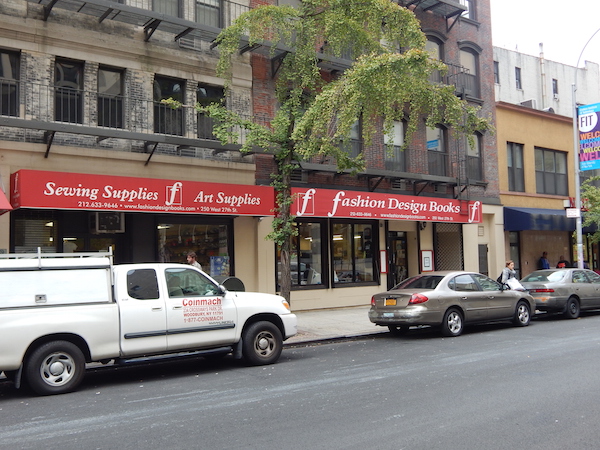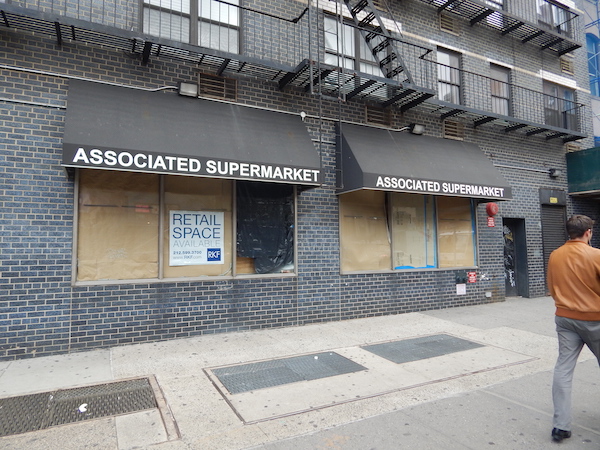
BY SEAN EGAN | “The fabric of this city is dying,” said Chelsea resident Roberta Gelb, while chiding the City Council and Manhattan Borough President Gale Brewer for the decades-long stalling of a bill that would strengthen the rights of commercial tenants during lease negotiations with landlords.
Unambiguous and apoplectic, Gelb’s linking of political inaction to the loss of single- and family-owned businesses was a common refrain at Oct. 20’s forum (“The Death (& Rebirth?) of NYC’s Mom-and-Pops”) — sponsored by the Chelsea Reform Democratic Club (CRDC; crdcnyc.org) in order to address the issue and examine solutions — most significantly, the aforementioned bill, the Small Business Jobs Survival Act (SBJSA).
In her opening statements, panel moderator and CRDC member Judy Richheimer decried the changing character of the city, noting that in lieu of the many unique shops that once drew people to the city, “I am seeing instead…a 7-Eleven, a Duane Reade, a — you name it — a bank, some chain store. Something you can find anywhere.” She then introduced the guest speakers: urban planner Lucian Reynolds, attorney Steven Barrison, and Eli Szenes-Strauss from the office of NY State Senator Brad Hoylman. Noticably absent was City Councilmember and Committee on Small Business chairperson Robert Cornegy, who cancelled at the last minute (in the audience was a representative of Chelsea’s Councilmember Corey Johnson, who is among the SBJSA sponsors).
Reynolds, co-author of the study “Big Impact: Expanding Opportunity for Manhattan’s Storefronters” and attending on behalf of Manhattan Borough President Gale Brewer’s Office, spoke about the BP’s efforts to help struggling small businesses by helping them navigate the resources currently available to New Yorkers. “There’s a gap between the people who need resources and the resources,” he commented, noting that instead of putting all hope in the SBJSA, these other processes (such as participation in a Merchants Association) could be used in the interim. He also noted other initiatives as being helpful to the community and business owners alike, such as the BP’s office studying “food desert” areas that lack grocery stores, and cracking down on landlord harassment (including sidewalk scaffolding that lingers for years, obscuring signage and discouraging walk-in traffic).
Barrison spoke strongly in favor of the SBJSA, a measure that has periodically gained steam and petered out since it was first introduced in the 1980s, and which Brewer does not support. Barrison, who also serves as Executive VP of the Small Business Congress NYC, noted that skyrocketing rents were the biggest problem facing small business owners now, and that the SBJSA would alleviate these issues by instituting a minimum 10-year lease with a right to renewal, and ensuring equal negotiation terms upon renewal.
“Right now, there are no rules, and when there are no rules, the landlord has 100 percent of the power,” Barrison asserted, while having literature distributed refuting the idea that the SBJSA had any legal issues surrounding its passing. Barrison also compared taking any other measures to combat the situation as using Band-Aids when open heart surgery was required, a simile which received applause.

Reynolds agreed that rent was the main issue at hand, but that other resources were also useful. He defended the BP’s position on the bill, stating that the wording was too broad, and could potentially be taken advantage of by big chains as well. “We need to be very specific about who we’re trying to help here,” he warned.
Szenes-Strauss noted that Hoylman did not have any position on the bill, nor did he have any bills targeting small businesses in the works — though his office had concern for small businesses, and were keeping note of the situation. However, he also said that Hoylman was sponsoring a bill that could “control and clam the renting market” by, among other things, putting zoning more in the hands of municipalities, which could benefit small businesses if used correctly.
The Q&A session that followed was comprised of precious few actual Qs, as most used the opportunity to simply state their opinions and frustrations with the current situation. Some brought up anecdotes of favorite stores that have closed over the years; others suggested improvements to the SBJSA or tax breaks that would incentivize landlords to work with mom and pops. Longtime neighborhood activist and Penn South resident Gloria Sukenick came out to highlight the fact that the situation has become so dire that an art supply store (Fashion Design Books at 250 W. 27th St., across from the Fashion Institute of Technology) would soon be shuttering its doors due to a drastic rent hike

The evening drew to a close with some words from a surprise visitor, State Assemblymember Richard Gottfried. Saying, “It makes tremendous sense,” Gottfried made clear his support of the bill, and disappointment that it has faced issues in City Council. “We shouldn’t be trimming the bill down, negotiating with ourselves,” he stated, while asserting that the resources already available to small businesses should also be used. “We can walk and chew gum at the same time,” he joked.
Differing opinions aside, the community was firm in the opinion that a solution needed to be reached, and fast. As attorney Peter Brightbill implored, to cheers, during the Q&A, landlords and politicians need to “Go out, and do the right things by mom-and-pops.”





































